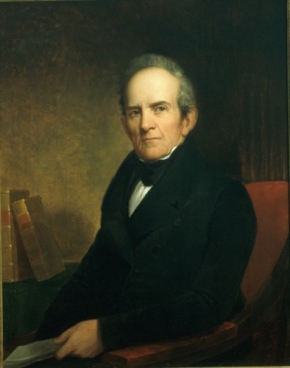You are here
Circuit Court Opinions:
Associate Justice Smith Thompson, Brewster v. Gelston (1825)

Brewster v. Gelston, 4 F. Cas. 82 (C.C.S.D.N.Y. 1825) (No. 1,853) [Second Circuit]
Federal juries had significant authority in the early republic, charged as they were with deciding both the law and the facts of a case. In Brewster, however, Justice Thompson demonstrated that he was more willing than many of his judicial colleagues to second-guess a jury verdict when he did not believe it to be supported by the evidence. The officers of a revenue cutter claimed that they were entitled to a portion of the proceeds from the seizure of a ship because they had given information to the collector of customs resulting in its forfeiture. After a jury verdict in favor of the plaintiffs, the defendant sought a new trial, claiming that the trial judge had erred in instructing the jury and that the verdict was against the weight of the evidence.
The defendant had requested that the jury be instructed that the plaintiffs could not recover on the evidence presented at trial. The trial judge declined to issue this instruction but instead informed the jury that the plaintiffs could recover if they had sufficiently proven each of the allegations in their complaint. Thompson found nothing improper about this instruction. Reviewing the trial record, however, Thompson found the jury’s verdict to be “obviously and palpably against evidence.” Unable to find proof in the record that the plaintiffs had in fact given information that led to the seizure and condemnation of the vessel, Thompson granted the defendant’s motion for a new trial.
